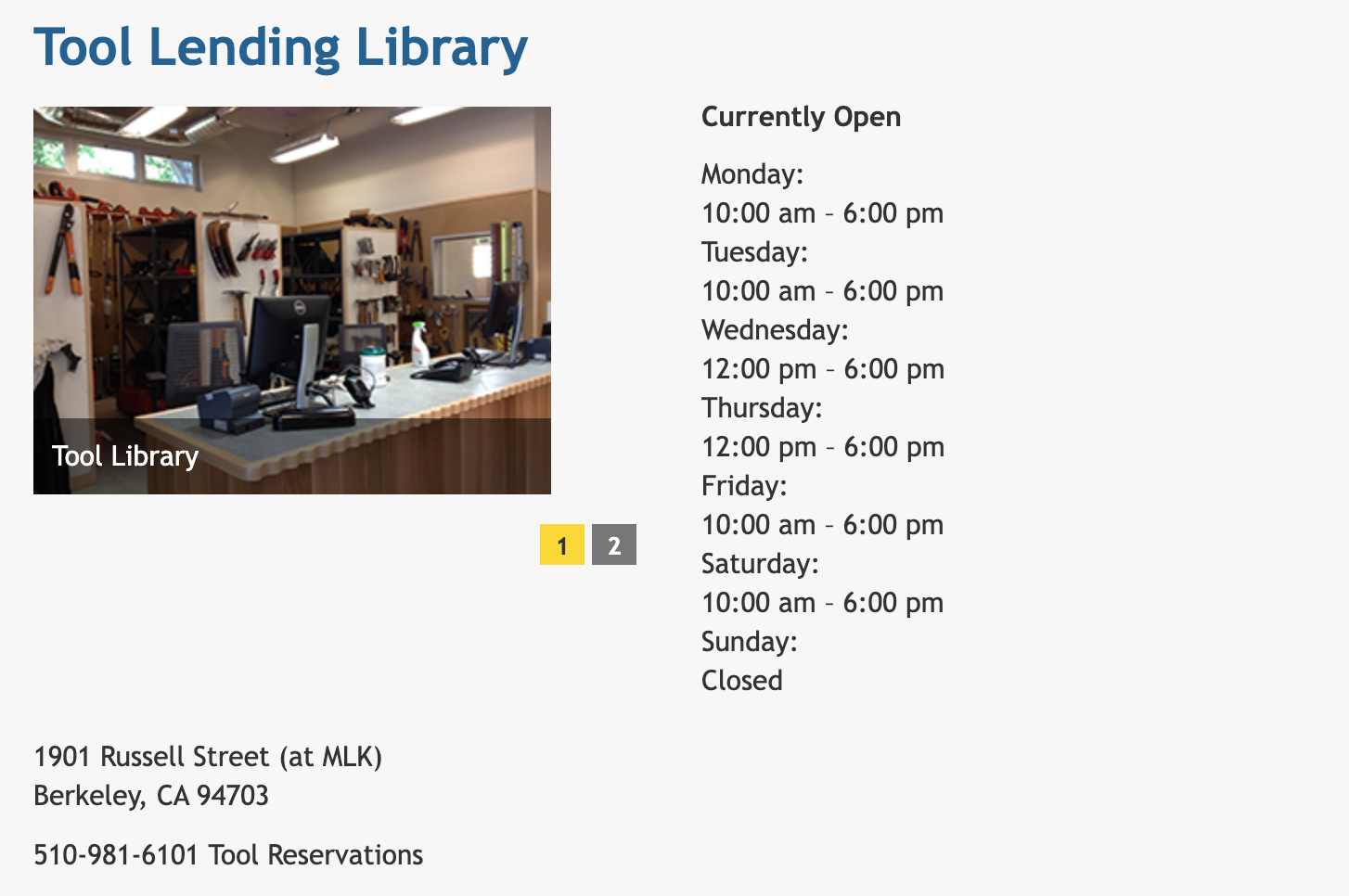Idealist.org once listed the Northern Nevada Tool Library, as part of the local maker movement, but its website www.nntl.co seems to be dormant.
Should the concept be revived and expanded? Could a section of Washoe County libraries or inside the Generator be devoted to this purpose, or a new local tools mutual aid group set up?
With tree limbs falling across yards during recent storms, rather than having to buy an expensive chainsaw from Home Depot, wouldn’t it have been nice to have a local tool lending library?
These lending libraries are also convenient for those who don’t have the space to store any tools. Kitchen and gardening supplies are sometimes also shared.
Tool libraries started in the 1940s in Michigan, boomed in the 1970s in California, and now total about 50 across the county. That’s a low number.
There are some impressive ones though, including the Berkeley Public Library’s one (pictured below) which can be accessed online.
Above is the tool selection page at the Grosse Pointe Public Library in Michigan, from A Aerator to W woodburning set and a dozen wrenches.
In Columbus, Ohio, a non profit called Modcon Living took over an existing tool library, and set up a system paid through fees and donations. It boasts “more than 4,800 hand and power tools for DIY projects.”
In Seattle, it’s a neighborhood association which operates a tool library called the PNA. There, tools beyond repair are donated to artists in case they want to use them as part of an installation, for extended use.
More recently, the Chicago Tool Library was set up and closer to us the Sacramento Library of Things.
There is also the concept of community tool sheds, some of them free like in San Antonio, which “contains a collection of hand and gas power tools that can be used at no cost by residents, businesses, and community groups … to clean and improve their properties.”
Available tools include lawnmowers, leaf blowers, loppers, rakes, shovels, tree pruners and weed eaters.
Rock Hill, South Carolina has a similar program to “promote community engagement, empower residents and organization to maintain their neighborhoods, serve as a resource for residents who are in violation of city code(s) to address matters in a timely fashion [and] reduce annual cost of enforcement of overgrown property and minor exterior structure violations.”
Is someone in Reno ready to rev this up?




